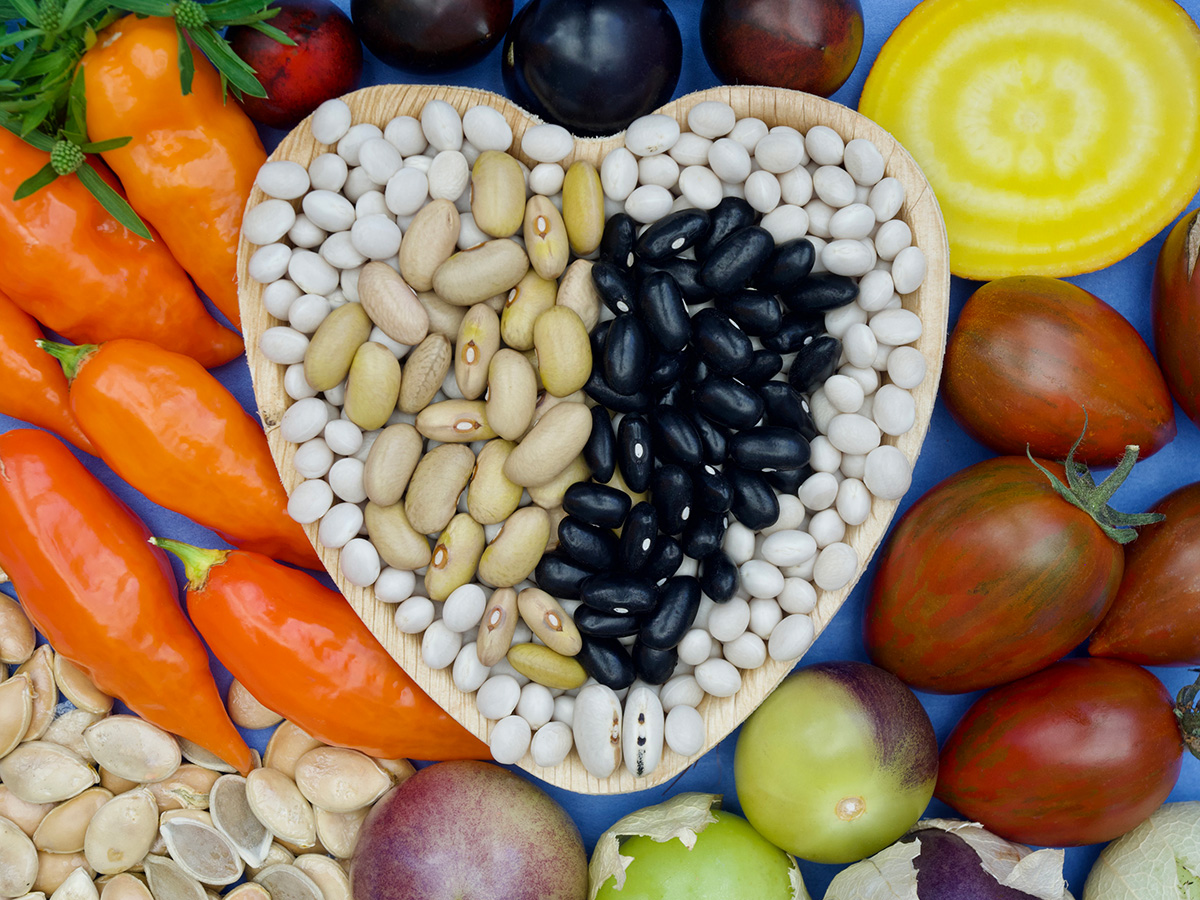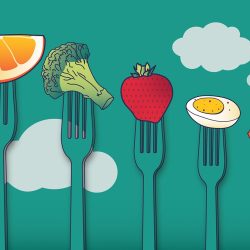Eric Holub ’82, MS’85, PhD’88 has a knack for improving upon regional culinary staples. As a postdoctoral student in plant pathology at UW–Madison, he bred a cold-and moisture-hardy alfalfa to better sustain Wisconsin’s dairy herds. Today, as a professor of translational plant genetics at the University of Warwick in Coventry, England, he’s developed three new varieties of UK–registered dry beans (URBeans) as part of an effort to diversify the British diet.
How will legumes diversify the diet of a nation nourished by baked beans on toast? According to Holub, URBeans inspire new food narratives. Capulet, which resembles a white navy bean, bears an iconic surname from Romeo and Juliet; Godiva, a blond bean, honors Coventry’s legendary Lady Godiva; and Olivia, a black bean, is named for the character from Twelfth Night. Unlike the imported navy beans of Heinz fame, URBeans are bred to thrive in “British soil and sunshine” and provide British home cooks with opportunities to broaden their culinary concept of beans.
“We’ll be breaking out of tinned thinking by working with everyday cooks as agents of change,” Holub says.
URBeans are the seeds of a growing UK public health initiative around food diversity. To accompany his new beans in British kitchens, Holub is gathering new varieties of tomatoes, peppers, squash, herbs, and root vegetables — many sourced from U.S. land-grant universities, including the UW — that are gardener-accessible, commercially scalable, and undeniably delicious. To Holub, a versatile, locally grown diet is a crucial step toward improving public health.
“We all need more diversity of plant fiber in our diets,” he says, “and it’s age-old sense to start changing people around you by sharing ideas and experiences around food.”
Cooks from community centers in Coventry and primary schools in neighboring Leicestershire have been preparing and serving a mix of Godiva and Capulet beans as part of Bean Meals, a program that engages students in the journey their food takes from local farms to lunch trays. At the University of Warwick’s main campus, a food truck serving locally grown baked potatoes will add URBeans to its topping offerings, and URBeans will be sold in local zero-waste grocery stores.
“I’m applying 4-H knowledge from my youth — head, heart, hands, health — for community and country and maybe the globe,” Holub says.
Published in the Spring 2024 issue




Comments
No comments posted yet.